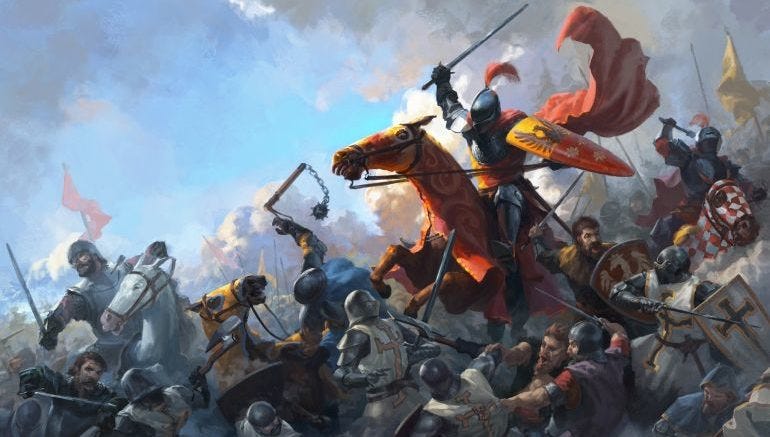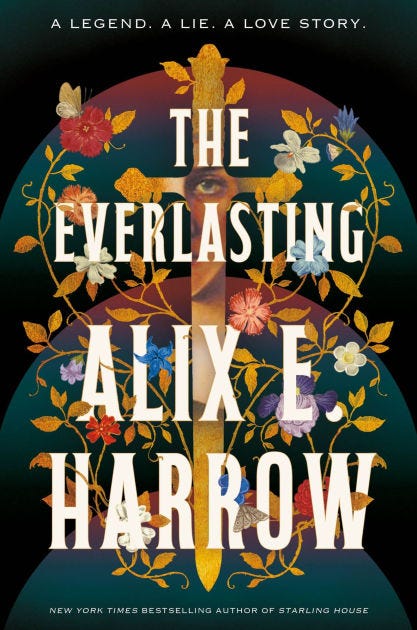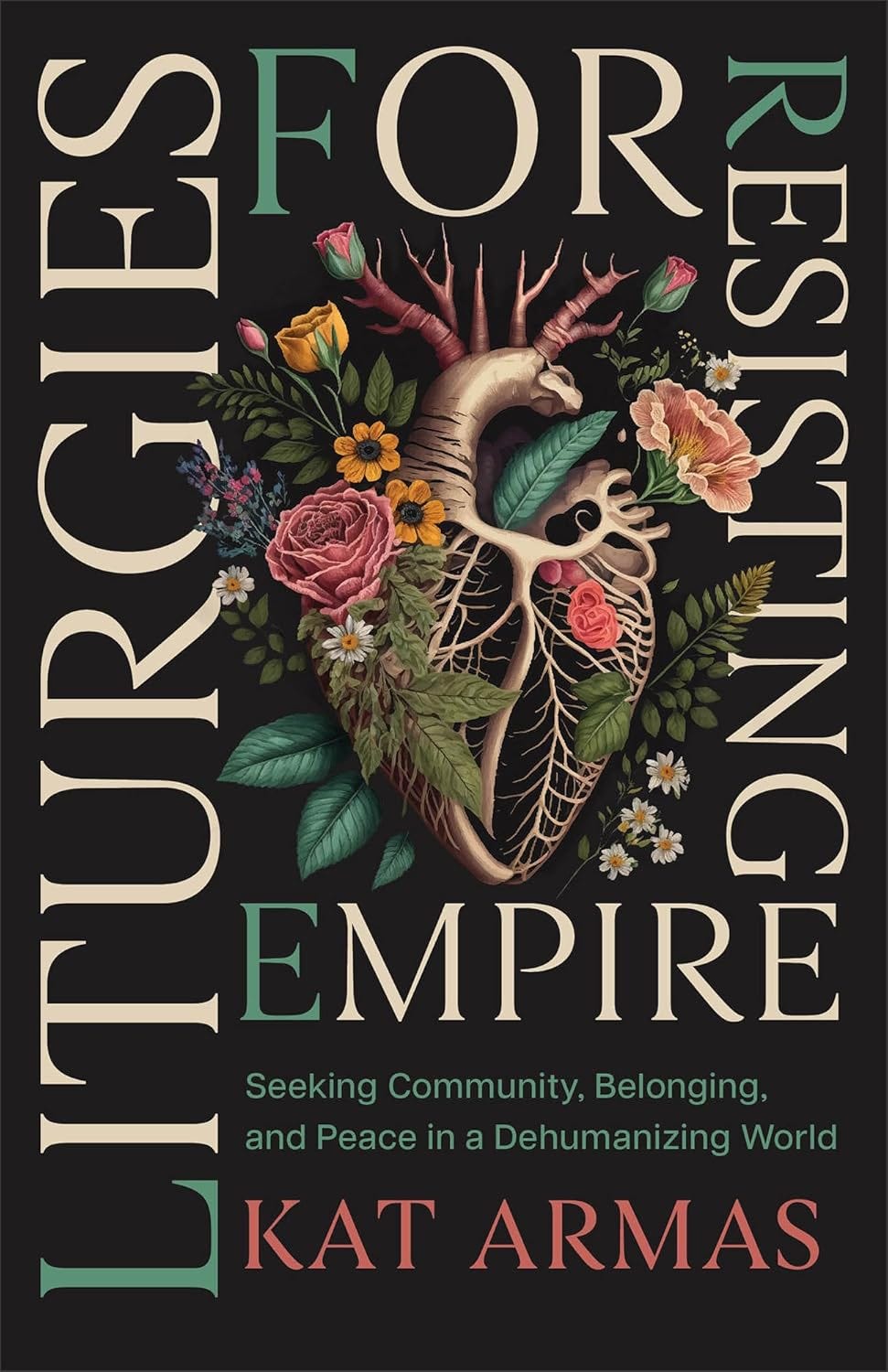Empires and Stories
How our national myths shape us
“You know that history is mostly happenstance. Accidents piled on top of mistakes, a series of dice rolled in dim rooms by careless hands. It is not a lesson, until we learn it. It is not a story, until we tell it. And every story serves someone.”
-The Everlasting, by Alix E. Harrow
When you read a lot, there are moments when a sort of synchronicity happens. An idea being explored in one book gets taken up from a different angle in another. Usually my reading habits consist of one fiction book that I read at night before bed, and one non-fiction book that I read from in the morning. Last week, I was finishing up Alix E. Harrow’s latest novel The Everlasting just as I was starting theologian Kat Armas’ new book Liturgies For Resisting Empire.
I quickly realized that a theme of both books is about how empires tell stories to perpetuate themselves, and, most often, the people in power at the head of them.
In Harrow’s novel, Owen Mallory is a citizen of Dominion, a war veteran, and a scholar obsessed with Dominion’s founding myth—the quests, battles, and victories of Una Everlasting, a female knight whose prowess helped establish the foundations of Dominion before she was tragically betrayed and killed.
Dominion’s Minister of War, Vivian Rolfe, summons Mallory for an important task of “service” to his country. She laments to Mallory that the peace they’ve won in the recent war (which he fought in) is “a fleeting, fragile thing. It must be protected, fought for, defended against all threats, native and foreign alike—and I fear we have grown weak….We’ve forgotten—as a nation, as a people—who we are….a nation is not a boundary on a map or a flag on a pole, but only a story we tell ourselves….And yet, it fades. The people forget. It’s time we remind them.”
And then she sends Mallory back in time1 because, it turns out, he’s the one who’s written the story, and he needs to ensure that Una plays her role.
What unfolds is a tale in which Mallory returns again and again to the past in order to get things right, because as it turns out, Una is not a saintly figure on a page, but a real flesh and blood woman with her own desire and struggles, and Vivian is not some selfless patriot, but is using Mallory to craft the nation’s mythology in such a way as to consolidate and perpetuate her own power. Through his time-traveling adventures, Mallory also grapples with the ways in which he’s been complicit in propping up Dominion’s empire-narrative, both as a scholar and a soldier.
Colonizing our Stories
As I was pondering the lessons of Harrow’s story, I had picked up and begun to read Kat Armas’ book. Armas is a Cuban-American writer and theologian who is interested in exploring Christianity from a postcolonial perspective. Toward the beginning of her book she writes:
“Empires have always created their own ideologies in order to justify domination and control. These beliefs become systems of oppression over people and land alike. And in their wake we are left with existential questions about identity and belonging that pierce the deepest parts of our being….The answers to these questions are flesh and blood. They not only shape who we are, rippling through our lives, but also steer the course of history, which unfolds through the telling of stories. Stories are never innocent, never impartial. They carry the weight of perspective, ideology, and cultural values.”
Armas echoes Harrow’s story here. Empires craft stories that give people a sense of identity and belonging, but only to reinforce their hegemony, and they impose that story on the conquered. Thus the most rooted form of resistance becomes another type of storytelling. Armas says:
“To interpret our own stories is to reclaim something sacred, to perform an act of resistance. The interpreter becomes the storyteller, the one who shapes their own history. But to be colonized is to be stripped of that power; it is to be erased from one’s own story. This is part of the empire’s violence: seizing control of interpretation, rewriting the past to impose its own narrative on people’s lives, land, and ancestors.”
American Myths
I find all this fascinating to think about because are in a particular moment in our own country where competing stories are battling it out. MAGA is a mythology—Make America Great Again. It tells a whole story: our nation used to be great, now it no longer is, but it’s time to restore it. It fosters a sense of identity: if you’re a real American, don’t you want America to be great? Who is bringing America down? People who hate it and don’t want it to be great. They’re not real Americans. If you want to save America, come don a red hat and join the movement. It’s all very seductive and appealing to the right audience.
Of course, if you begin to interrogate the mythology, you start to wonder: when was America great? What made it great? Who was it great for?
This power of mythology is also why efforts like The 1619 Project have been so feather-ruffling for many people. It’s America’s story written by those it oppressed and enslaved, and it purports to turn the whole dominant narrative on its head. This has driven some people into a rage, because as Harrow wrote “every story serves somebody” and the dominant one usually serves those in power.
Storytelling As Resistance
While there is much to be despairing about in these days of creeping authoritarianism, the perspective that Harrow and Armas offer gives me hope, because it reminds me that storytelling is a form of resistance that we can all practice. Most of us do not have our hands on the levers of power to stop injustice or cruelty or corruption. We can all reclaim stories that may have been taken from us by empire, or we can begin to tell new ones about the kind of communities and nations that we want to be. And with each telling or retelling, we, as Armas says “reclaim something sacred” and we begin to bend history in a different direction.
Wildly skipping over mechanics here to get to the point. If you’re intrigued, read the book for yourself!






Thanks for sharing this encouragement Chris. “Storytelling is a form of resistance” I loved that … also, I too am reading a fiction book at one time of day and non fiction at the other. Augustine’s Confessions and McEwan’s What We Can Know. It’s fun to find the overlap, as you did in yours.